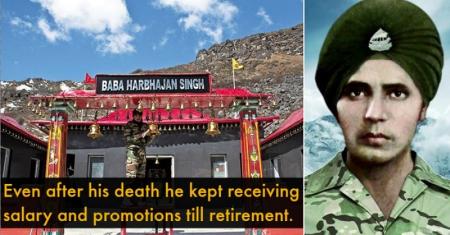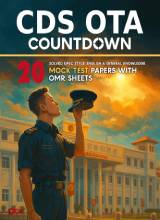A Soldier who died 50 years ago is still protecting the country at the border
Hello folks, hope you are doing great with your preparation.
The today’s blog is a spiritual one, in which we will discuss a soldier who’s dead, still protect the border.
This soldier is Captain Harbhajan Singh, many officers and soldiers posted in Nathula valley and Indo-Tibet border observed various incidents.
Due to the never-ending devotion of serving the country, the soldiers call him as ‘Baba’, which means ‘spiritual father’.
Moreover, the Indian Army also raised a holy shrine of Baba Harbhajan Singh, regards him with the status of a god.
It is believed that Harbhajan Singh took part in Indo-China war 1968 at Nathula and was martyred in that war.
The Nathula Pass on Indo-China border in the state of Sikkim is a strategically important location for Indian Army.
Blocked by snow in the winter, it is also one of the four border personnel meeting points for Indian and Chinese armies.
Following are some interesting facts about Baba Harbhajan Singh:
- Captain “Baba” Harbhajan Singh was an Indian Army Soldier and he was posted at Nathula during Indo-China war 1968.
- Moreover, he is also referred to as “Hero of Nathula”.
- He was born into a Sikh family, in Sardana village (now Bathebhiani in Tarn Taran district)
- Harbhajan Singh joined as a soldier to Punjab Regiment.
- He was martyred at an age of 22, in 1968 near Nathula in eastern Sikkim.
- The actual cause of death was said that Singh drowned in a glacier while leading a column of mules carrying supplies to a remote post.
- His body was recovered after 3 days search and was cremated with full military honor.
Why he is regarded as Baba and how he protects the border even after his death:
There have been many incidents that had taken place near the Nathula region which gives evidence of the presence of Baba’s spirit and are discussed as follows:
- After his death, his fellow told that Harbhajan Singh appeared in their dream and asked them to build his ‘Samadhi’.
- It is believed that the water kept at Baba’s shrine is capable of healing ailments.
- Baba had many times warn the Indian soldiers in their dreams telling them about impending attack by China that too at least three days in advance.
- Any officer who does not maintain a clean and disciplined uniform is punished and slapped by Baba.
- Also, the uniform of Baba and his boots are cleaned every day and hanged in his shrine.
- The next day the uniform appears as if it had been worn by someone (i.e. Baba Ji).
- Even the Chinese believe in Baba’s existence, and during flag meetings between two nations, a chair is kept aside for Baba.
- The Units posted in the region seek Baba’s blessing by dedicating various plating in the Shrine walls.
- The Indian Army even promoted him from the rank of a soldier to an Honorary Captain and paycheck was sent to his family.
- Baba was also granted annual leaves on 14th September every year like every soldier is granted with leaves.
- A berth is reserved for Babaji and is left empty in the entire journey.
- A team of soldier accompanies him to his hometown.
- Also, his belongings were packed and kept for Kapurthala by train and are brought back after the leaves.
- During his leaves, in the absence of Baba, the Army get in high alert in the region.
- This was done until he retired a few years ago.
Baba’s Shrine:
- The Shrine of Baba Harbhajan Singh is located between Nathula and Jelepla Pass, Gangtok, India.
- Baba’s Mandir or shrine today has three rooms, Baba’s office, store room, and living room.
- In the living room, every item of his need has been neatly kept. His bed, shoes, slippers, water bottles, ironed uniform, an umbrella everything.
- His room is cleaned every morning.
- On some morning, soldiers have found crumpled bedsheet and his muddy shoes in the room.
- He still draws a Major’s salary every month.
Surprising isn’t it?
Well if you get a chance, do visit to Baba’s shrine and get his blessings. In the concluding line I would like to say:
“A Soldier dies never: though they sleep in dust their courage nerves a thousand living”.






 Order Now on Amazon
Order Now on Amazon
